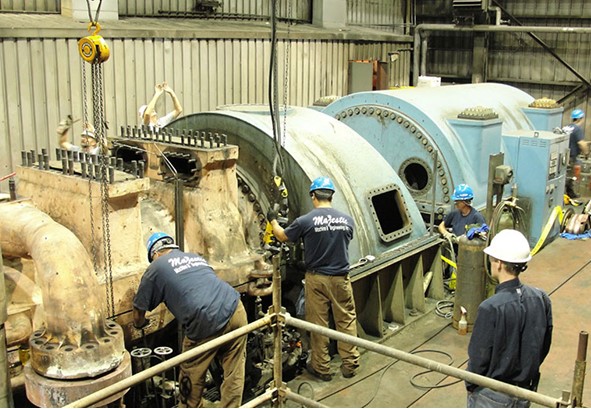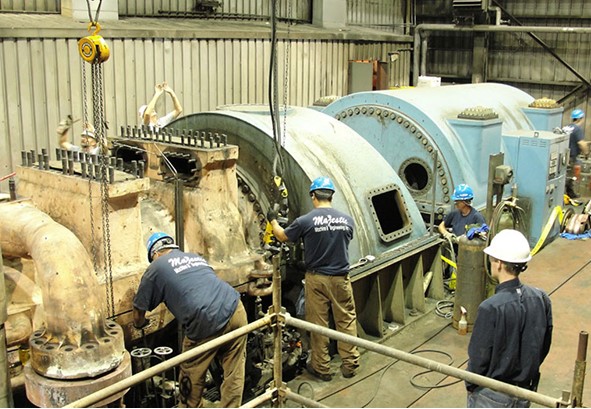COURSE OVERVIEW
EE1117 : PSS/E Stability Analysis

OVERVIEW
| COURSE TITLE | : | EE1117 : PSS/E Stability Analysis |
| COURSE DATE | : | May 05 - May 09 2025 |
| DURATION | : | 5 Days |
| INSTRUCTOR | : | Dr. Ahmed El-Sayed |
| VENUE | : | Abu Dhabi, UAE |
| COURSE FEE | : | $ 5500 |
| Register For Course Outline | ||
Course Description
This practical and highly-interactive course includes various practical sessions and exercises. Theory learnt will be applied using our state-of-the-art simulators.
This course is designed to provide participants with a detailed and up-to-date overview of Power System Simulator for Engineering (PSSE) Stability Analysis. It covers the power system stability, PSSE modules and interfaces including PSSE graphical interface and command line usage; the buses, generators, loads and transmission lines; the transformers, switched shunts, static and dynamic model distinctions, equipment parameter settings and load flow studies in PSSE; and the dynamic data files (DYR), machine models and control systems.
Further, the course will also discuss the load modeling techniques, simulation initialization and validation; the event and disturbance definition and running time-domain simulations; tuning dynamic models for realistic behavior; matching simulated response with real data; the sensitivity to parameter changes and proper documentation and reporting; the transient stability concepts, protection and control coordination and multi-machine system stability; and the application of power system stabilizers (PSS).
During this interactive course, participants will learn the voltage stability analysis, visualizing and reporting stability results and renewable integration and dynamic models; the frequency stability analysis, contingency analysis and stability margins; the FACTS and HVDC systems modeling and model validation using measurement data; the python scripting basics, automating simulations and case setup, batch processing and reporting and custom functions and user-defined tools; and the fine-tuning system response, stability index trends, impact of network reconfiguration and optimizing control schemes.
link to course overview PDF
TRAINING METHODOLOGY
This interactive training course includes the following training methodologies:
LecturesPractical Workshops & Work Presentations
Hands-on Practical Exercises & Case Studies
Simulators (Hardware & Software) & Videos
In an unlikely event, the course instructor may modify the above training methodology for technical reasons.
VIRTUAL TRAINING (IF APPLICABLE)
If this course is delivered online as a Virtual Training, the following limitations will be applicable:
| Certificates | : | Only soft copy certificates will be issued |
| Training Materials | : | Only soft copy materials will be issued |
| Training Methodology | : | 80% theory, 20% practical |
| Training Program | : | 4 hours per day, from 09:30 to 13:30 |
RELATED COURSES

EE0031(SE2) : Electrical Maintenance Management, Failure Analysis & Troubleshooting
- Date: May 04 - May 08 / 3 Days
- Location: Al Khobar, KSA
- Course Details Register

EE0625 : Certified High Voltage Electrical Safety (IEC, OSHA, NFPA & EN Standards)
- Date: May 04 - May 08 / 3 Days
- Location: Dubai, UAE
- Course Details Register

EE0800 : Generators
- Date: May 04 - May 08 / 3 Days
- Location: Dubai, UAE
- Course Details Register

EE0800 : Generator Operation, Maintenance, Control, Testing & Troubleshooting
- Date: May 04 - May 08 / 3 Days
- Location: Al Khobar, KSA
- Course Details Register
